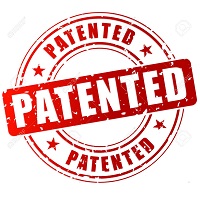Research
Project
MOVASS - Modelo y herramienta para el proceso de especificación de pruebas de validación de sistemas software
- Research areas:
- Services and Software Technologies
- Status:
- Finished
- Members:
- Juan Garbajosa Sopeña
- Start date:
- 01-01-2002
- End date:
- 01-01-2004
![]()
It is necessary to begin this summary stating that the scope of the initially proposed project was severely reduced in duration (one year instead of three) and in implementation of 40.530 euros budget reduced to 9,000 euros. These circumstances forced a rethinking of the objectives presented in the proposal focusing more on those that could involve consolidation of results obtained in previous projects together with preparation of material that allows to reach the goals outlined in the proposal and that is expected to get the support of future projects. The basic objective of the project was to specify a process model for validation of software-intensive systems testing. An environment would then be built to automate this testing would be integrated with the existing specification TOPEN (Test and OPeration Evironment). ENCOUNTER was a result of the project arch Ref. TIC98-0782. Additionally this process model would rate and would be extended to systems with components. Given the situation of departure and exposed strategy, will put more emphasis on improving the existing process models (although limited to specific application domains) and previously built tools (encounter) at the time was working in the new process model for the definition of validation tests. This strategy allowed a smooth transition in combination with the European project METSES Multiple-Site Environment For Testing Systems With Embedded Software Ref IST-2000-28583 of the V framework programme of the EU. This project was implemented since July 2001 and ended in October 2002. His goal was to apply to two industrial domains the results of the arc project, mentioned above. The project informed obtained the following results. * First iteration, still not sufficiently formalized, in the process of definition of validation tests. This task completed, was one of the objectives of the proposal; * Definition of new scenarios based on industrial applications to use as inputs for the specification of the model of process for definition of validation tests. This aspect is important since it will allow to evaluate the process once your specification. This allows to move in one of the tasks that are implemented later. This objective has been able to carry out thanks to which the METSES project was running in parallel and has been made possible a feedback; * Consolidation of the environment encounter produced in the arc project, which ended in the year 2000 and whose results have been applied in METSES. The objective in the proposal meant to update the environment so that it would be usable once the new process was ready. This objective is fulfilled partially since the process was not fully specified, but the scenarios were available. Why has advanced in the proposed direction; * The rest of the objectives of the proposal demanding that the process of definition of validation tests were done, which has not been possible for the reasons stated. However there is an additional result that is relevant. Considerable progress has been made in the construction of the environment encounter so that is is decreasing the cost of adapting to a new application domain. This result has been achieved through a greater generality of patterns of design and data. On the other hand also progress in the generation of one of the components, code generator, based on a model of data and interaction using XML and Java technology. This is an additional result that has a great value within the strategy of the research group. In fact these advances have allowed to reorient the way in which it was built the encounter and it will be possible to bring it much closer to industry; * In the aspect of dissemination of results is the principal investigator was Chairman of the program Committee of SV02 First Inenational Workshop on System Testing and Validation, held in Paris in December 2002 together with the International Conference on Software and System Engineering and its Applications.
![]()
Es necesario comenzar este resumen mencionando que el alcance del proyecto inicialmente propuesto se vio severamente reducido en duración (un año en vez de tres) y en presupuesto de ejecución de 40.530 euros reducido a 9.000 euros. Estas circunstancias obligaron a un replanteamiento de los objetivos presentados en la propuesta centrándose más en aquellos que podían implicar consolidación de resultados obtenidos en proyectos anteriores junto con preparación de material que permita acercarse a las metas descritas en la propuesta y que se espera conseguir con el apoyo de futuros proyectos. El objetivo básico del proyecto era especificar un modelo de proceso para pruebas de validación de sistemas intensivos en software. A continuación se construiría un entorno para automatizar esta especificación de pruebas que se integraría con el ya existente TOPEN (Test and OPeration Evironment). TOPEN fue el resultado del proyecto ARCO Ref. TIC98-0782. Adicionalmente se evaluaría este modelo de proceso y se extendería para sistemas con componentes. Dada la situación de partida y la estrategia expuesta, se puso más énfasis en mejorar los modelos de procesos existentes (aunque limitados a dominios de aplicación concretos) y las herramientas previamente construidas (TOPEN) al tiempo que se trabajaba en el nuevo modelo de proceso para la definición de pruebas de validación. Esta estrategia permitió una transición suave en combinación con el proyecto europeo METSES Multiple-Site Environment For Testing Systems With Embedded Software Ref IST-2000-28583 del V Programa Marco de la UE. Este proyecto estaba en ejecución desde julio de 2001 y terminaba en octubre de 2002. Su objetivo era aplicar a dos dominios industriales los resultados del proyecto ARCO, antes mencionado. El proyecto aquí informado obtuvo los siguientes resultados. * Primera iteración, aún no suficientemente formalizada, del proceso de definición de pruebas de validación. Este tarea terminada, era uno de los objetivos de la propuesta; * Definición de nuevos escenarios basados en aplicaciones industriales para utilizar como entradas para la especificación del modelo de proceso para definición de pruebas de validación. Este aspecto tiene una gran importancia ya que permitirá evaluar el proceso una vez finalizada su especificación. Ello permite avanzar en una de las tareas que se ejecutarían posteriormente. Este objetivo se ha podido llevar a cabo gracias al que el proyecto METSES estaba corriendo en paralelo y ha sido posible una realimentación; * Consolidación del entorno TOPEN producido en el proyecto ARCO, que terminó en el año 2000 y cuyos resultados han sido aplicados en METSES. El objetivo planteado en la propuesta implicaba actualizar el entorno de manera que fuera utilizable una vez el nuevo proceso estuviera listo. Este objetivo se ha cumplido de forma parcial ya que el proceso no estaba totalmente especificado pero los escenarios sí estaban disponibles. Por ello se ha avanzado en la dirección propuesta; * El resto de los objetivos de la propuesta exigían que el proceso de definición de pruebas de validación estuviera terminado, lo cual no ha sido posible por la razones expuestas. Sin embargo hay un resultado adicional que sí es relevante. Se ha progresado considerablemente en la construcción del entorno TOPEN de tal forma que se está disminuyendo su coste de adaptación a un nuevo dominio de aplicación. Este resultado se ha conseguido a través de una mayor generalidad de los patrones de diseño y de datos. Por otra parte también se ha avanzado en la generación de uno de los componentes, el generador de código, a partir de un modelo de datos y de interacción utilizando tecnología XML y Java. Este es un resultado adicional que tiene un gran valor dentro de la estrategia del grupo de investigación. De hecho estos avances han permitido reorientar la manera en que se construía el TOPEN y será posible acercarlo mucho más a la industria; * En el aspecto de difusión de resultados es de destacar que el investigador principal fue Presidente del Comité de Programa de SV02 First Inenational Workshop on System Testing and Validation celebrado en Paris en Diciembre de 2002 junto con la International Conference on Software and System Engineering and its Applications.
Funding: Ministerio de Educación, Cultura y Deporte.










